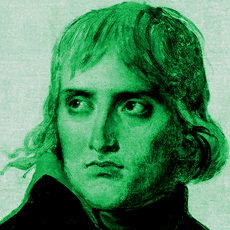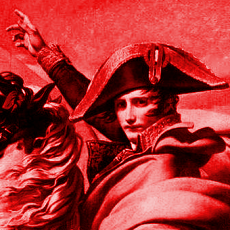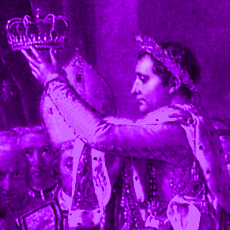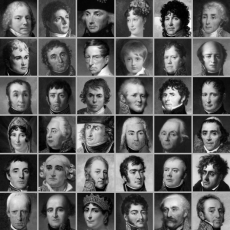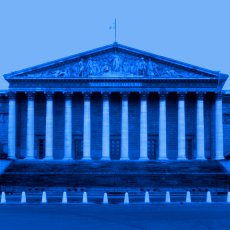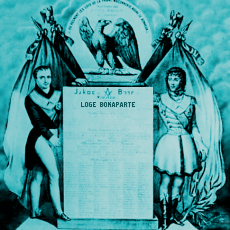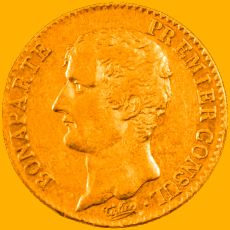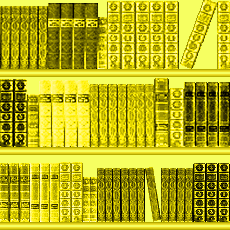News
Newly added, supplemented or revised pages of the siteTop Seven
The most visited pages of the siteBattle(s) of the month
Event of the day
21 november
1806
Berlin Decree establishing the continental blockade.
Pictures of the month
November 24, 1803: In Paris, inauguration of the Pont des Arts
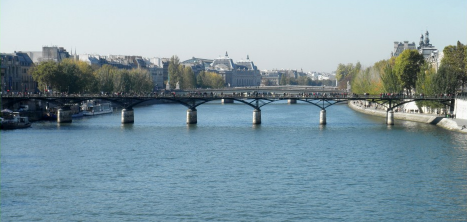
November 25, 1804: Napoleon goes to the Pope at Fontainebleau
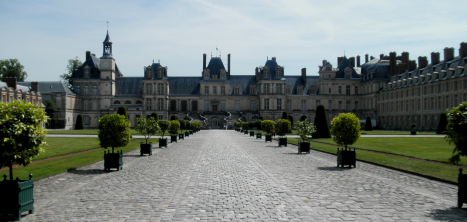
November 13, 1805: Schönbrunn Palace becomes Napoleon's residence
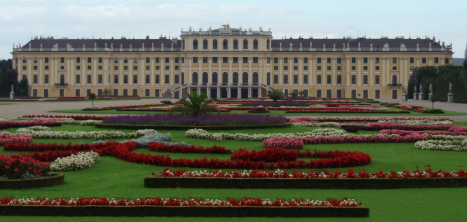
The "raison d'être" of the Napoléon & Empire website
A Google search for "Napoleon Bonaparte" brings up over ten million results. The idea of adding a drop to this ocean can therefore only come from enthusiasts, determined as they are to bear witness to their fascination for a character endowed, according to Chateaubriand, with "the most powerful breath of life that ever animated human clay".
The "Napoleon & Empire" website claims no other legitimacy.
In our opinion, Napoleon's will, intelligence, daring and achievements make him the prototype of the "great man". Even if this concept is viewed with suspicion today, the fact remains that from a relatively modest lineage and a peripheral province recently united with France − Chateaubriand described his family as "half-African" − he rose to power in one of the oldest and most important countries in Europe, before carving out an empire for himself on a continent then made up of the most prosperous, developed and powerful nations on the globe. Not even Caesar, a patrician born in the capital of the Roman Empire, or Alexander, heir to the kingdom of Macedonia, could compare with him in this respect. He owes his dizzying ascent to his talent, of course, but also to his energy and, above all, his activity − he will always speak of his genius in a somewhat mocking tone, but will take great pride in his capacity for hard work. In this way, his career is positively revolutionary.
His work is no less so. The period of Napoleon's career, so short in truth, is so full of events that it has no equivalent in French history. It fell to the First Consul, then the Emperor, to preside over the reconstruction of a new society based on new legal, political and social rules, on the ruins of the Ancien Régime destroyed by the Revolution. Less dazzling than his military prowess, this refoundation proved more useful and more profitable to the nation − and more lasting, too, in its effects, for the institutional edifice it built proved to be of rare solidity, and was maintained for the most part well into the 20th century. France built its modern state on this foundation, and many European countries followed suit.
Why, with such a track record, does Napoleon arouse such admiration and fascination in some, and such hostility in others? Why did the French authorities prefer to remain as discreet as an English butler during the years 1996-2015, when so many glorious bicentennials were waiting to be commemorated? The slavery re-establishment lawsuit brought against Napoleon cannot, alone, explain this phenomenon, especially as it only began in 2005, and other opportunities had already been squandered in previous years.
The primary cause certainly lies in the reputation for warmongering that attaches to his name, and the bloodshed for which he is held responsible. But is he really the only one to blame for the incessant conflicts that ravaged Europe during his reign? Is there no doubt that his adversaries were determined to make peace, and especially England, which financed hostilities against France, his main historical rival, for twenty-five years? Admittedly, the man many consider to be the greatest military genius of all time, and who always imposed himself on his enemies on the battlefield, may have abused this superiority. However, it's hard to deny that his warlike ventures had other than political aims. It was Louis XIV who confessed: I loved war too much
; Napoleon, on the other hand, used it as a tool, never prolonging hostilities once his objectives had been achieved. It's true that, up to that point, he practices it withour qualms. If time and the evolution of mentalities have spoiled the prestige of great conquerors, let's not forget that Napoleon lived at a time when military glory and heroism were usually ranked among the noblest achievements of the human person, and war was considered a school of virtue. In fact, we don't have to go back very far to recall the days when Hoche, Marceau, Kléber and Desaix were held up as examples to children in french schools.
General Bonaparte, some would argue, was certainly of the same calibre. But he didn't die like them at the turn of the century, and metamorphosed into an entirely different character: Napoleon I. This is the other recurring criticism levelled at him: that he stifled the Revolution. This is forgetting − or refusing to see − that his regime was a worthy heir to the Revolution, when it exhausted itself trying to get European sovereigns to accept its annexations; that the Empire, as a political entity, was part monarchy and part republic; that the much-maligned Napoleonic wars also led to the collapse of large swathes of feudal and absolutist institutions throughout Europe; that the Emperor remained consistently more popular with the lower classes of society than with the upper; that he was always concerned to provide work for the workers and to supply the markets properly!
All this, you may object, at the price of freedom. That's true. It's impossible to deny it. Napoleon's temperament and training combined to make him hate disorder. He saw it as the consequence of excessive freedom during the revolutionary years. He mistrusted it, and compressed it with all his might. In doing so, however, he met with little opposition in French society, which was generally indifferent to the loss, since equality had been proclaimed and secured, while the nation's dazzling grandeur, which came very close to total domination of Europe, flattered the pride of its people. The sacrifice made was, it seemed, amply compensated. And perhaps it was the prerequisite for achieving that synthesis of Ancien Régime and Revolutionary France which, from the 18th Brumaire onwards, was one of the objectives most doggedly pursued by both Consul Bonaparte and Emperor Napoleon. Although he was unable to achieve it for lack of time, and the respective elites of these two groups did not amalgamate, he nevertheless forced them, throughout his reign, to coexist and put their abilities at the service of the state, for the latter's greatest benefit. Indeed, the Consulate and Empire together make up one of those rare periods in French history when our country's successes were achieved exclusively at the expense of foreign powers, and not of a section of its own people.
It's clear, then, that he is such a diverse character that any judgment of him is bound to be reductive. Hence the contradictory accounts of his life, and the divergent assessments givent to him and his work. It's hard to find a place where to put together a young Corsican patriot, a fallen sovereign who was a prisoner and ill, a victorious conqueror, a revolutionary general favored by Robespierre and then Barras, and an authoritarian emperor. Napoleon played all these roles, and many more, in diplomatic, political, administrative and military spheres. He alone is the exception that confirms − or the example that invalidates, each to judge according to his own personal conviction − the view that history can be explained by the general laws of social evolution, and not by the consequences of the choices made by its major players.
In conclusion, Napoleon Bonaparte's life is one of history's most prodigious phenomena, one of its most irreducibly singular yet universal figures. His complexity continues to fascinate people all over the world. Each generation finds in him something to fuel its own problematics. There's no doubt that the day when his story will cease to be written is still a long way off.
Lionel A. Bouchon
